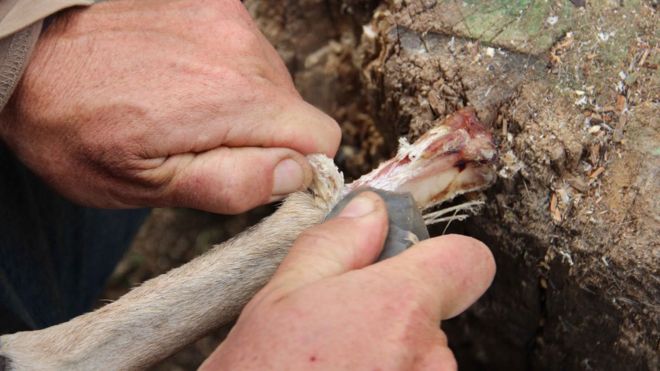In experiments, researchers removed skin from stored bones to match cut marks
found on bone fragments PA MEDIA
Scientists in Israel say they have found evidence that early humans deliberately stored bones from animals to eat the fatty marrow later.
It is the earliest evidence that humans living between 200,000 and 420,000 years ago had the foresight to anticipate future needs, they say.
Early humans had not previously been thought capable of such dietary planning.
Researchers analysed bone specimens at Qesem cave near Tel Aviv.
They identified cut marks on most of the bone surfaces - consistent with preservation and delayed consumption.
The researchers suggest the marks came about because the early humans had to make greater effort to remove skin which had dried on bones which had been kept longer.
Read the rest of this article...

No comments:
Post a Comment
Note: Only a member of this blog may post a comment.